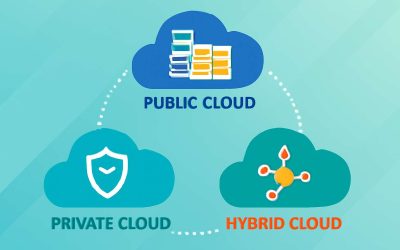The cloud is the digital infrastructure that delivers applications and data through an internet connection. Cloud computing is a key enabler of business innovation, allowing smaller businesses to take advantage of technologies previously available only to large enterprises. It also drives costs down by eliminating the need for organizations to buy and manage their own IT hardware and software, which is referred to as capital expenditure (CAPEX).
A cloud-based architecture can be scalable at runtime to meet changing work demand without disrupting operations. This scalability is achieved by cloning tasks onto multiple virtual machines at runtime. The result is a high availability of services that are transparent to users.
Cloud computing has gained traction since 2020 as many organizations accelerated their IT transformation plans during the pandemic lockdowns. Gartner predicts that companies will continue to prioritize the integration capabilities, agile work processes and composable architecture of the cloud to drive their digital business transformation.
In addition to reducing costs, the cloud enables businesses to operate more reliably by providing secure, geo-redundant and scalable IT infrastructure. It can improve IT agility by enabling rapid deployment and faster time to market, and help businesses implement artificial intelligence and machine learning use cases. It can support a mobile workforce by ensuring that workers can access the company’s data and applications from any device at any time and location.
It can help to improve cybersecurity by allowing companies to securely store and backup data in a third-party data center, rather than on local devices. This reduces the risk of data loss in the event of a cyberattack or power failure. It can improve productivity by enabling employees to collaborate on projects remotely. This is possible thanks to cloud-based office applications like Google Docs and Microsoft 365. It can also enhance a company’s disaster recovery strategy by giving employees the ability to work from home or on the go in the event of a workplace disaster.
Choosing the right cloud platform is important because each offers unique strengths. Amazon Web Services is the oldest and largest of the big three, and it has a lot of experience supporting massive swings in consumer demand. Microsoft’s Azure is a strong alternative to AWS, and it has the advantage of being part of the larger Microsoft ecosystem. Google Cloud is the smallest of the major cloud platforms but has the potential to leverage the power of the Android operating system to boost its market share.
The qualifications for a career in cloud computing vary depending on position, but most positions require at least a bachelor’s degree and several years of experience with server administration and computer architecture. Obtaining certifications is an excellent way to demonstrate your skills and dedication to this field. There are countless online learning opportunities, from individual courses to multipart certificate programs. Whether you are looking for your first job or seeking to advance your current role in the cloud, these training programs can set you up for success.



0 Comments